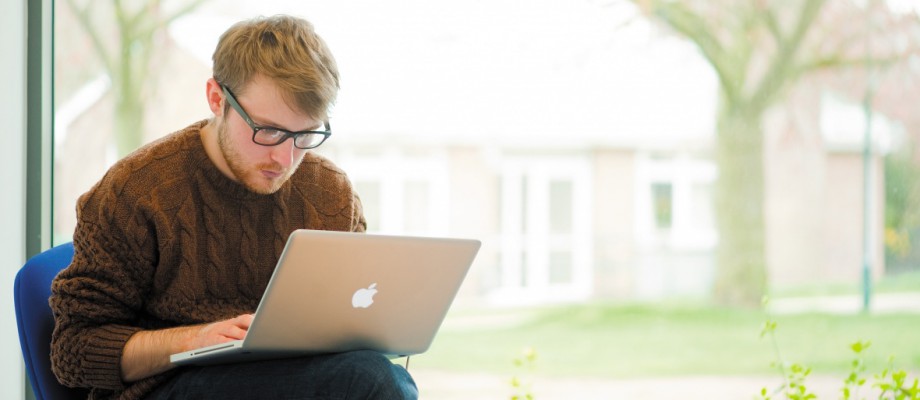
Help scientists find out why you sound like your parents
January 14th, 2016
Have people often commented on how you sound like your mum or dad, or get your family mixed up on the phone? If so, a team of researchers at The University of Nottingham needs your help in a new and unique project to find out if aspects of the human voice are passed down through our genes.
The pilot study is called Heritability of Human Voice Parameters and will use Massive Online Public Engagement (MOPE) to investigate the roles of nature and nurture in determining the qualities of our voices.
If enough people take part, the scientists believe they will be able to show that vocal qualities are partly inherited. This would be the first step towards genetic studies to pinpoint the actual genetic variants that contribute to the human voice. Importantly, this could inform future research to help develop treatments for voice disorders.
The Voice Project’s principal investigator and functional geneticist, Abdul Kader Kheriallah from the School of Medicine, said: “It’s very easy for people to take part in our study because it can all be done through our specially designed website using any computer which has a microphone. We need voice samples ideally from both parents and all their children over 18 years old. But we are also looking for voices from other relatives as well as unrelated individuals as these will be useful controls in the study.
“We need several hundred voice samples to make the study viable and hope that people will enjoy taking part in some cutting edge science. Who knows, it could lead to fun things like an app which can predict the voices of your children before you’ve had them!”
Leading the study, George Blundell-Hunter from the School of Life Sciences, added: “We are very excited about our Human Voice study because it’s a great opportunity for the public to get personally involved with science and technology. Taking part in it will be fun and doesn’t involve complex reading, and it doesn’t matter if people have different accents. It’s more to do with the acoustic attributes of your voice, in technical terms the intensity, format dispersion and fundamental frequency of the sound you make. If we get enough digital recordings submitted online we will be able to see how strong the genetic and the environmental components are in contributing to the human voice parameters.”
The ‘About the Study’ section of the Human Voice Parameters website has details of how to take part including a set of videos explaining exactly what to do to submit your voice samples to the study and why this area of genetic research is important. There are also details of how to cascade the study details to encourage family and friends to take part too.
The project is a collaboration between scientists working at the University’s School of Medicine, School of Life Sciences and the Advanced Data Analysis Centre. It has been funded by a sandpit grant from The University of Nottingham Graduate School.
Tags: Abdul Kader Kheriallah, genetics, Massive Online Public Engagement, MOPE, research, School of Medicine, study, voice
4 Comments
Leave a Reply
Other News

Need news? See you on SharePoint
After 14 years of service, Campus News is being retired as the university’s staff news platform. […]

Roads and car parks closed for refurbishing work
As part of ongoing road improvements at the university, works will be taking place to resurface […]


January 27th, 2016 at 11:21 am
Sheila Popple
I would be interested in taking part and look forward to hearing more.
January 27th, 2016 at 11:27 am
Mike Jennings
Hi Sheila, thank you for your interest. To take part, visit the webpage at the link below. This page has details of how to take part and a link to participate: https://voice.nottingham.ac.uk/about/
January 27th, 2016 at 6:04 pm
Nikki
Can i have permission to put details of this study on my blog? Also are you interested in just Notts or are other geographical areas included ?
January 28th, 2016 at 1:02 pm
Mike Jennings
Hi Nikki, thank you for your interest. Absolutely, please do feel free to share this study – it is not limited to Nottingham.